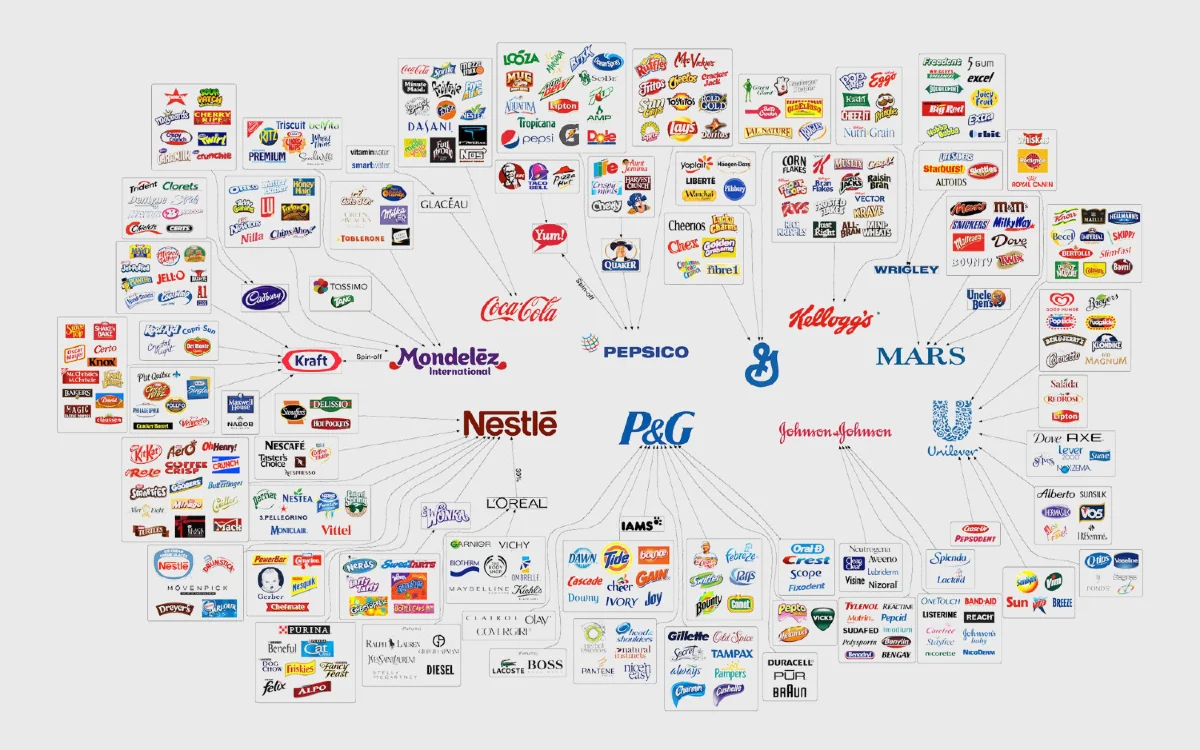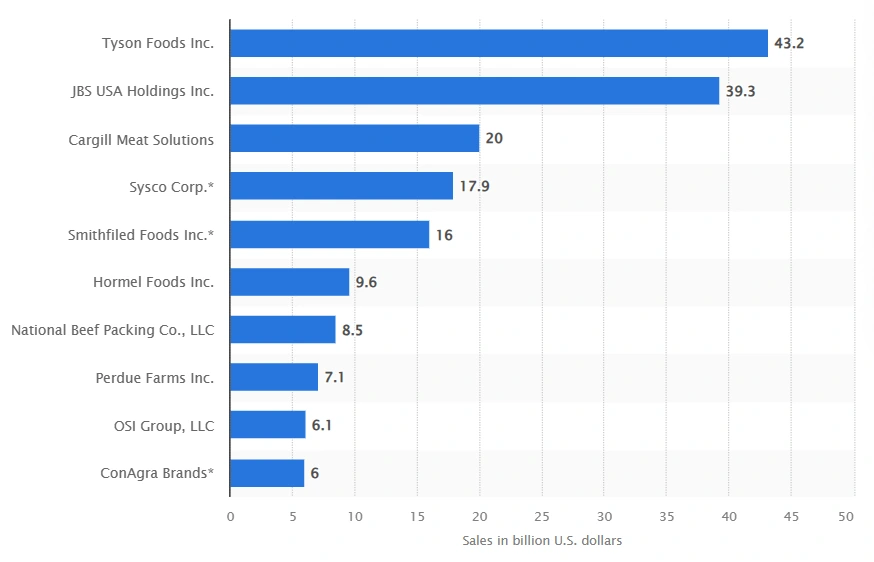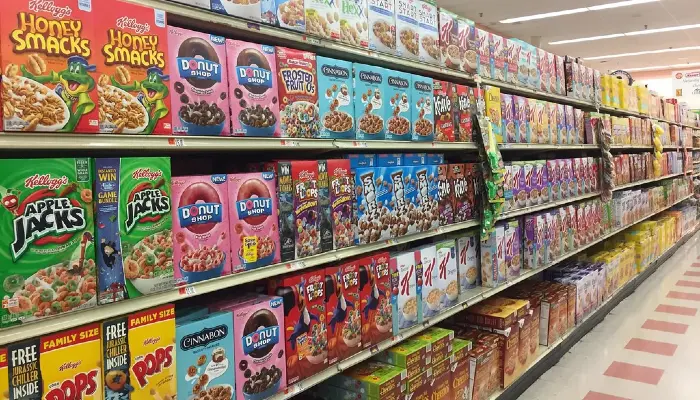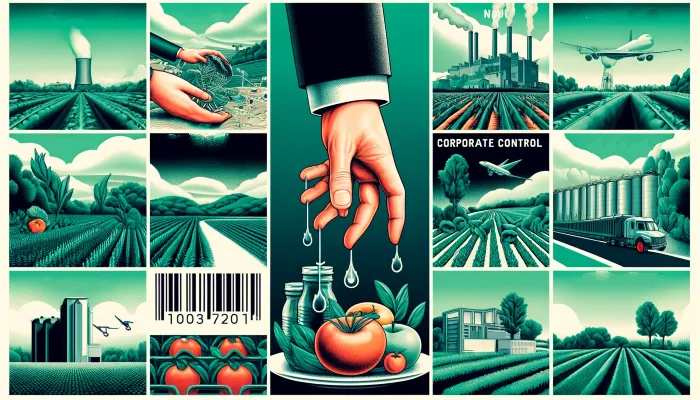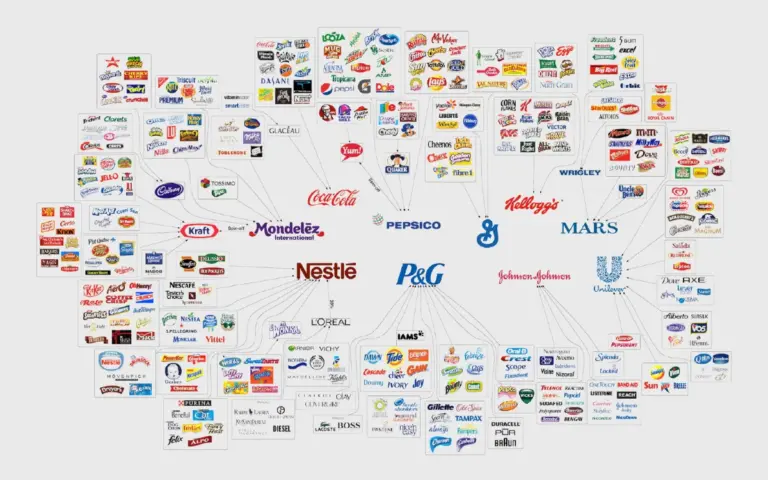The industrialized food system in the U.S. is fraught with issues, from corporate monopolies to unsafe working conditions. Here are seven startling truths about how our food gets to our tables.
- We’re Guinea Pigs for Industrialized Food
Investigative journalist Eric Schlosser calls us “basically guinea pigs” for a new form of industrialized food. Ultra-processed foods, loaded with artificial flavors and chemicals, dominate the market. These foods, never consumed before, are linked to various health problems, including obesity and cancer.
- Meatpacking Workers Were Sacrificed During COVID-19
During the pandemic, meatpacking plants became hotspots for COVID-19. Workers, many of whom are immigrants, faced deadly conditions. Despite local health officials’ attempts to shut down infected plants, the Trump administration issued orders to keep them running, prioritizing production over worker safety.
- Corporate Control is Stifling Competition
A handful of companies control most of our food supply. Four meatpacking companies control 85% of the beef market. Similar monopolies exist in other sectors, like cereals and baby formula. This concentration leads to higher prices and fewer choices for consumers.
- False Choices at the Supermarket
What looks like a variety of brands and products at the supermarket is often controlled by a few corporations. For example, JAB Holding Company owns multiple coffee brands like Peet’s and Caribou, while Starbucks and Dunkin dominate coffee shops. This illusion of choice hides the reality of limited competition.
- Unsafe Infant Formula Production
In 2021, contamination at an Abbott Nutrition plant led to a nationwide infant formula shortage. This factory, responsible for 20% of the U.S. supply, had serious sanitation issues. Despite this, Abbott remains a major player in the market, highlighting the dangers of corporate monopolies.
More To Discover
- Science Class or Beef Commercial? How the Beef Industry is Targeting Your Kids’ Classrooms
- Transparency Gap: Companies Fail to Report Impact of Environmental Initiatives
- Report Reveals Over Half of U.S. ‘Climate-Smart’ Farm Funds Do Nothing
- Nestlé Resists Investor Pressure to Reduce Unhealthy Ingredients in Its Products
- Economic Devastation in Rural America
Corporate consolidation has decimated small farms and rural communities. Since the Reagan administration, the U.S. has lost half its cattle ranchers and over 90% of its hog and dairy farmers. This shift has led to economic hardship and depopulation in rural areas.
- Migrant Workers Sustain Our Food System
Our food system relies heavily on immigrant labor, particularly in agriculture and meatpacking. Despite their essential role, these workers often face exploitation, low wages, and poor working conditions. The pandemic highlighted their vulnerability, yet their contributions remain undervalued.







